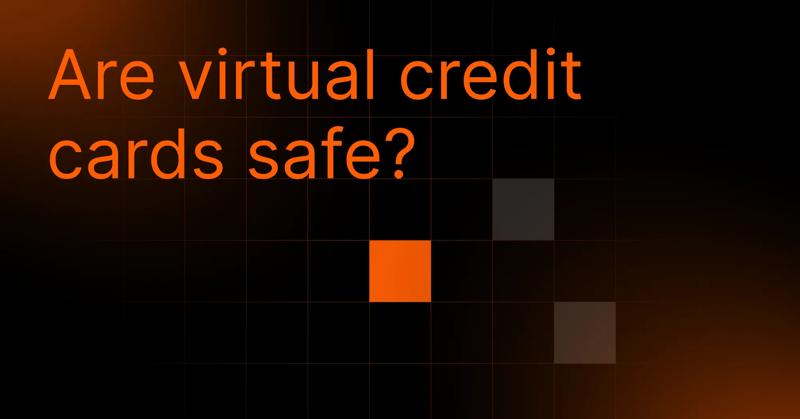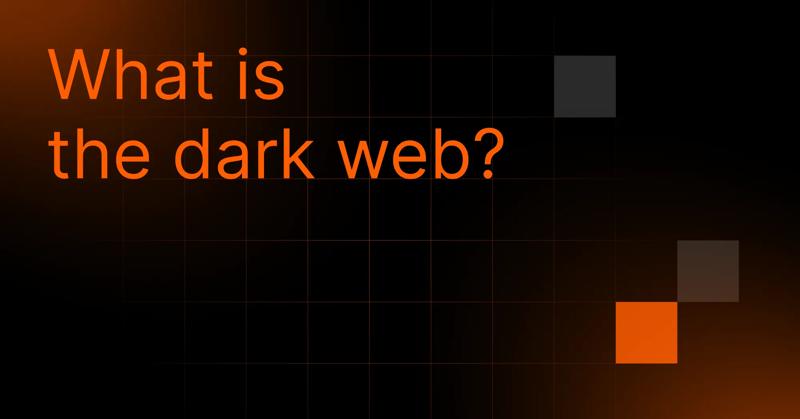15 Cash App scams: How to avoid them
Cash App is a convenient way to send and receive money, and it’s one of the top money-sending platforms in the United States. However, this popularity comes with risk because criminals see services like it as easy targets. This guide explains how Cash App scams work, the warning signs to look out for, and how to protect your money and personal information before it's compromised.

What is a Cash App scam?
A Cash App scam is an attempt to manipulate or trick a user into sending money or sharing their personal details through Cash App. These scams often impersonate customer support, claim to offer fake giveaways, or create a sense of urgency to get you to act quickly. Before you know it, you’ve already transferred money through the app. They share similarities with financial scams on other platforms, like Venmo or Zelle.
Scammers use fake websites and phishing messages to convince Cash App users they’re interacting with a legitimate service. Once money is sent or information is given, it’s usually gone for good.
How does Cash App work?
Cash App is a payment platform that lets users send, receive, and invest money directly from their phones. As an online wallet, it supports bank transfers, debit cards, and even Bitcoin transactions.
You can pay people using their $cashtag (Cash App identifier), phone number, or email. It makes money transfers quick and easy, which is both good and bad. While transactions are convenient, they’re also mostly irreversible, which is what scammers seek to exploit.
If someone tricks you into sending them money, Cash App typically can’t retrieve it unless it's a verified error.
15 most common Cash App scams
Cash App scams come in many forms, and they can be easy to fall for if you’re not aware of how they work. From fake giveaways to impersonators and phony customer support accounts, these are some of the most common tactics to watch out for.
1. Cash App Bitcoin scams
Cash App Bitcoin scams involve fraudsters promising to double or even triple your Bitcoin if you send them crypto through the app. The scammer requests a small amount in crypto and returns it to the victim with a profit. Once they’ve gained the trust of their victim, they then ask for a bigger amount. The cycle repeats until the scammer has been transferred a large enough sum of Bitcoin, and they no longer return the cryptocurrency to the owner.
2. Catfishing scams
Catfishing scams on Cash App play on your emotions, trust, and vulnerabilities. A scammer might pose as another person who reaches out via a dating app or even a fake profile on Instagram. Instagram scams are especially common, with fraudsters using photos and fake accounts to build credibility. At first, the messages seem innocent and flattering. They’ll invest time (days or sometimes even weeks), building a false emotional connection. Then, once they’ve earned your trust, the requests for money begin.
3. Fake Cash App customer support accounts
Say you’re having trouble with a payment or a glitch, and you Google “Cash App support” or search for it on X (Twitter). But instead of reaching the real company, you land on a fake support profile or website that looks almost identical to the real one.
The impersonators might post their number on public forums or reply to Cash App-related hashtags. Once you contact them, they’ll ask for your login details, Social Security number, or even remote access to your phone. In some cases, they’ll claim you must “verify your account” by sending money to a specific $cashtag.
This scam is particularly dangerous because people assume support accounts are trustworthy, especially when they’re in crisis mode. These impersonator scams often spread via various types of phishing, making them part of a broader internet fraud ecosystem.
4. Giveaway scams
Scammers impersonate Cash App or influencers running fake #CashAppFriday promotions on social media. They tell you you’ve won a prize but must first verify your identity, and it’s usually done by sending a small payment or providing personal information. Once you pay, you never hear from them again.
5. Survey scams
These scams promise free Cash App rewards or gift cards in exchange for completing a quick online survey. After answering basic questions, you’re asked to input sensitive details like your name, phone number, or even Social Security number.
You don’t get the promised reward, and instead, your data may be sold to shady marketers or used for identity theft.
6. Payment claiming scams
In this scam, someone claims to have sent you a payment but says it’s "pending" and needs to be unlocked. They ask you to send money first to release the funds, often making it sound urgent or official. You might be told it's a verification step or part of a Cash App policy, but once you send the money, it’s gone, and no payment ever arrives.
7. Money flip scams
A money flip scam is when you’re promised a quick return. For example, the scammer asks you to send $100, and you get $1,000 back. It sounds like easy money, but it doesn’t involve flipping. Once the money is sent, the scammer vanishes or keeps baiting you with promises of a “bigger flip.”
These scams often use fake success stories, screenshots, and urgent messaging to pressure you. Remember, no real financial service multiplies your money on command. If it sounds too good to be true, it’s best to be wary.
8. Romance scams
Romance scams take more time but are more dangerous. It’s similar to the catfishing scam where the scammer builds trust over weeks or months, making you feel emotionally attached. Then they claim to be in trouble. They might tell you they’re stuck abroad, hit with an emergency, or need help with an investment.
You’re asked to send money through Cash App “just this once.” But once you do, the requests for money don’t stop. Victims can lose thousands before realizing the relationship was fake from the start.
9. Rental deposit scams
You find a dream rental online and are asked to pay a deposit or application fee via Cash App to “hold” the property. But the catch is that there’s no property. The listing was either copied or completely fake.
Once the money is sent, the scammer blocks you. Unfortunately, because you voluntarily sent funds, Cash App typically can’t recover them. To avoid such losses, always view a rental in person and avoid paying strangers through peer-to-peer apps.
10. Fraudulent security alerts
Scammers send fake alerts about suspicious Cash App activity, often via spam text messages or email. They include links or phone numbers that redirect you to phishing websites or fake support hotlines.
These messages look real, but they’re designed to steal your login information, reset your password, or install malware. Real Cash App security alerts will never ask you to verify your identity by entering sensitive data outside the app.
11. Fake versions of the Cash App app
Downloading Cash App from anywhere other than the Apple App Store or Google Play is risky. Some fake versions look identical but are programmed to steal your login information or payment data.
Once installed, they may capture your credit card or payment credentials and silently transfer funds from your account. If you’d like to learn more, you can take a look at our guide on credit card fraud.
12. Pet deposit scams
Scammers post adorable puppies or kittens for sale online and ask for a deposit via Cash App to reserve the animal. After the payment is sent, they disappear, and the pet may have never even existed.
Victims lose hundreds to what feels like a trustworthy exchange, often on platforms like Craigslist or Facebook Marketplace. Avoid sending deposits to sellers you haven’t met in person or verified through reputable breeders.
13. Accidental payment scams
Someone sends you money and says it was a mistake, asking politely if you can return it. In reality, the original transaction was made with stolen credentials and will be reversed by the bank.
When you “refund” them, you’re using your own money. It’s a clever con that relies on your kindness or sense of fairness, but it leaves you footing the bill once the original payment disappears.
14. Cash App email scams
Cash App email scams look like they’re from the platform and claim there’s a problem with your account. They might say you’ve received a payment or that your account needs verification, all to get you to click a malicious link.
These links often lead to phishing sites that steal your login credentials. Once scammers have access, they can empty your balance and linked accounts or even use your details for further fraud.
15. App glitch
You might see posts claiming a "Cash App glitch" gives you double the money if you send a small amount first or download a different version of the app. It’s framed as a secret hack, sometimes with screenshots to "prove" it works. It’s important to remember that Cash App does not run hidden promotions or offer double payments under the radar.
How to recognize a Cash App scam
Scammers follow patterns. Be on the lookout for:
- Requests to send money first before receiving anything.
- Messages or calls claiming to be from Cash App but using generic email addresses or phone numbers.
- Typos, bad grammar, or unusual urgency.
- Promises of easy money, especially if they ask for payment in cryptocurrency.
- Links that redirect to unofficial websites or ask for sensitive information.
What to do if you are already a victim of a Cash App scam
If you’ve been scammed on Cash App, follow these steps:
- Report the scam to Cash App immediately. Open the app, go to your profile, and tap “Support.”
- Contact your bank. If your debit card or bank account is linked, alert your financial institution.
- File a report with the FTC. Visit reportfraud.ftc.gov.
- Freeze your credit. Follow this guide to freeze your credit card to prevent identity theft.
- Stay alert. Watch for follow-up scams, especially if your personal info was compromised.
How to avoid Cash App scams
Staying safe on Cash App means being cautious and proactive. Follow these simple but effective steps to protect your money and avoid Cash App scams:
- Never send money to strangers. Always verify who you’re sending money to.
- Ignore unsolicited messages. Don’t respond to random DMs, emails, or text messages claiming to be from Cash App.
- Use official channels. Only contact Cash App support via the app or official website.
- Enable security features. Turn on two-factor authentication and set up a PIN or fingerprint. Leverage an identity theft protection service like NordProtect to monitor your personal information and flag suspicious activity.
- Avoid third-party downloads. Only download the app from official app stores.
- Don’t overshare. Keep your personal information, such as your Cash App PIN and bank details, private to avoid identity theft.
- Learn how to spot a phishing email and avoid falling for common traps like a lottery scam. Knowing the dangers online and the potential scams you could encounter is your first line of defense.
- Consider additional security tools. For instance, NordProtect’s scam protection bundle combines dark web monitoring, browsing protection with NordVPN and Threat Protection Pro™, and online fraud, scam, and cyber extortion insurance to help reduce financial and data exposure if a scam occurs.
For more ways to stay protected online, explore NordProtect’s features, including security alerts, credit monitoring, and dark web monitoring. Stay alert and spot threats early with NordProtect.
Scams are in the air!
Save up to 75% on identity theft protection
30-day money-back guarantee
View promotion details.
Ugnė is a content manager focused on cybersecurity topics such as identity theft, online privacy, and fraud prevention. She works to make digital safety easy to understand and act on.



